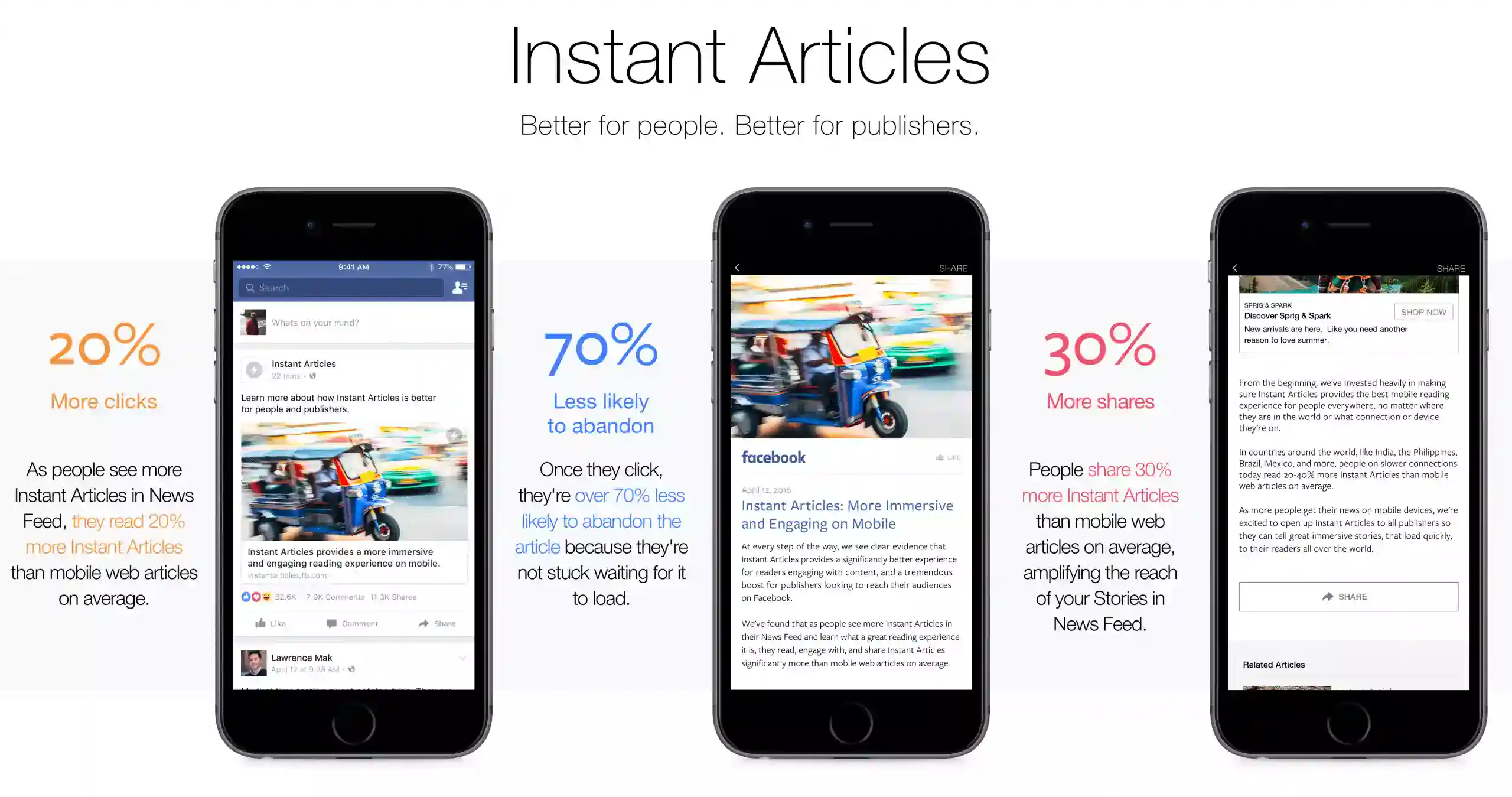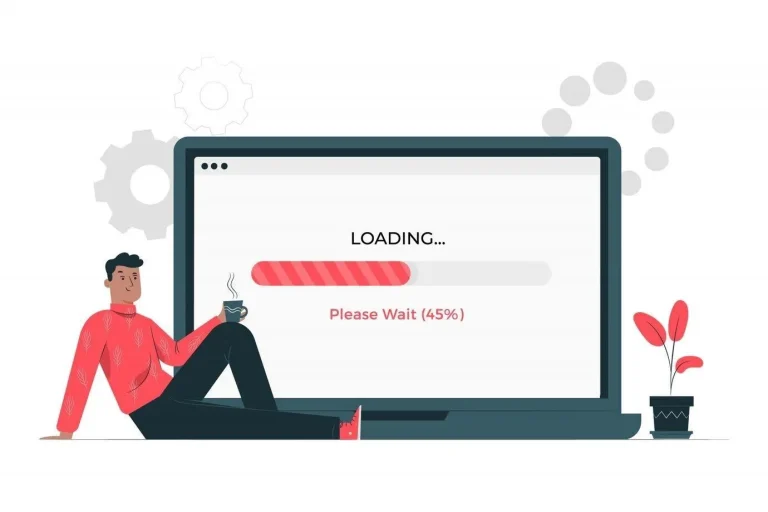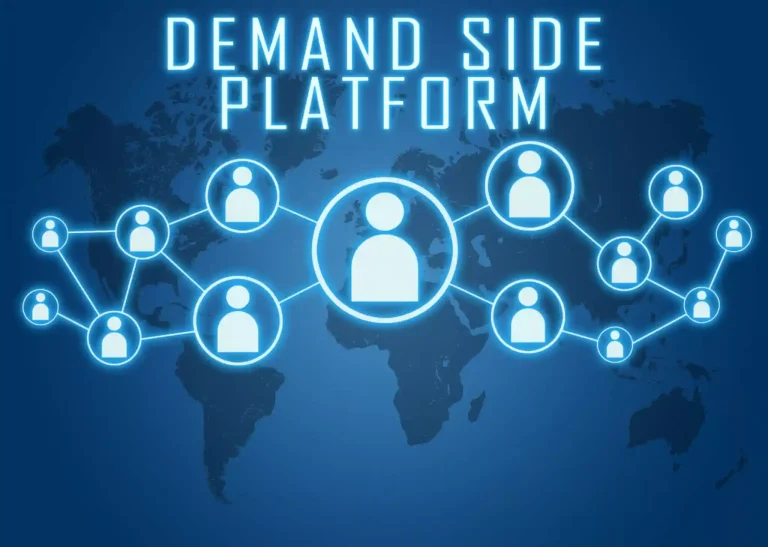Much has been said about Facebook’s mission to make its content more compelling than the web. The social giant launched its Instant Articles feature in May 2015 and courted publishers by promising them just that: More engagement with Facebook users, which leads directly to more pageviews and potentially greater ad revenue.
The feature presents an opportunity for publishers of all sizes. It is an excellent way for them to expand their reach beyond the usual confines of their platforms. Moreover, it guarantees the distribution of their articles on Facebook’s app with a loading speed four times faster than the normal mobile web.
However, after several years of use, Facebook announced that it would deprecate Instant Articles in mid-April 2023 and no longer accept new publishers to the program. This blog post will delve into the reasons behind the decision, explore its impact on publishers, and look at alternative solutions.
Table of Contents
Why Facebook Is Pulling the Plug on Instant Articles
With the rise of the mobile web, Facebook has been working on making its Instant Articles platform more relevant. It has become a way for publishers to share content directly from their websites onto the Facebook app. This would allow users to view content without leaving the platform and improve publishers’ engagement rates. The format was designed for mobile devices and optimized for speed.

Image Source: http://tcrn.ch/1T2emuz
It was a win-win: Publishers could reach more readers and increase their engagement with the platform; Facebook got more content on its platform that could drive ad revenue.
Over time, though, the feature has become less attractive to publishers due to a shift to other priorities and changes in user behavior. Let’s take a look at these reasons.
Is Stories and Video Adoption Behind Instant Articles Decline?
Facebook is a platform juggernaut, with more than 2.96 billion monthly active users and 1.98 billion daily active users. While this is great news for content creators who want to reach more people, the usage of Instant Articles has decreased over time as users have shifted towards other formats for consuming content, such as Stories and videos.
While announcing Q1 2022 earnings, Mark Zuckerberg, CEO of Meta, highlighted that videos account for 50% of total time spent on Facebook, and Reels have become the fastest-growing content format on both Facebook and Instagram. As per a Meta spokesperson:
“Currently less than 3% of what people around the world see in Facebook’s Feed are posts with links to news articles. And as we said earlier this year, as a business it doesn’t make sense to over invest in areas that don’t align with user preferences.”
Could It Be a Result of User Shifting to Open the Web?
As users prioritize open standards and a decentralized web, they seek more flexible and accessible ways to access content rather than being limited to the content pushed to them by a single platform. It allows them to find content in its raw form rather than having it filtered and ranked by algorithms, which can lead to homogeneity and a lack of diversity in the content that is being consumed.
According to a report released by OpenX,
When on the open web, 58% of individuals express a desire to learn more, surpassing the number who feel similarly while using Facebook or Instagram. Conversely, over 25% of people using Facebook or Instagram report feeling indifferent and not focused, compared to only 8% when using the open web.
Further, the open web is typically more neutral in its content presentation, while walled gardens like Facebook have been criticized for having biases and promoting certain viewpoints over others.
Is This an Attempt to Move Away From Political Content on Facebook?
It’s not publicly known if reducing political and sensitive content is a specific reason for Facebook deprecating Instant Articles. However, the platform has made efforts in recent years to prioritize content moderation and reduce the spread of misinformation or misleading information, hate speech, and other harmful content, particularly in the political sphere. It could have played a role in the decision to discontinue the feature, but it’s unclear if this was a direct cause.
Overall, Facebook’s decision to shut down Instant Articles is part of its ongoing effort to adapt to changes in user behavior and shifting priorities and to provide users with the best possible experience on its platform.
Facebook Instant Articles: Less Traffic, Less Revenue?
Instant Articles will be around for a while, but publishers should consider the ramifications of being pushed off. The deprecation of the feature will affect publishers in several ways, such as:
Loss of reach
Publishers using Instant Articles to reach a large audience on Facebook may experience a decline in reach and engagement, as their content will no longer be natively hosted on the platform.
Decreased monetization
Publishers who have been monetizing their content through Instant Articles may see a decline in revenue, as they will no longer be able to monetize their content on the platform.
Decreased user experience
The faster loading times and interactive features of Instant Articles provided a better user experience for Facebook users. These features are necessary for users to be more likely to engage with content from publishers.
Increased costs
Publishers may have to invest in new technologies and resources to optimize their mobile web content for Facebook, which can result in increased costs.
The impact, at least on a surface level, can be profound and will likely continue to influence publishers. While it may not have been in Facebook’s best interest, publishers now have more freedom to look for distribution and awareness on their other websites.
It’s Time to Start Planning for What’s Next
While the social media giant has given publishers a few ways to control their content, they still rely on Facebook’s algorithms. The latest move reminds them to remain vigilant in their strategy and technology approach. That said, the fading of Instant Articles presents an opportunity for publishers to improve the user experience and better control their content and monetization strategies.
A website with fast load times might be the key to drawing attention back towards publisher-owned websites and away from embedding their content on third-party platforms. Publishers can also explore alternative ways to reach and monetize their audience. One such example is Header Bidding which is intended to support publishers and enable them to drive more value out of their ad inventory.
Would you like to learn how Header Bidding can improve the monetization of your content? We’re just a click away.























